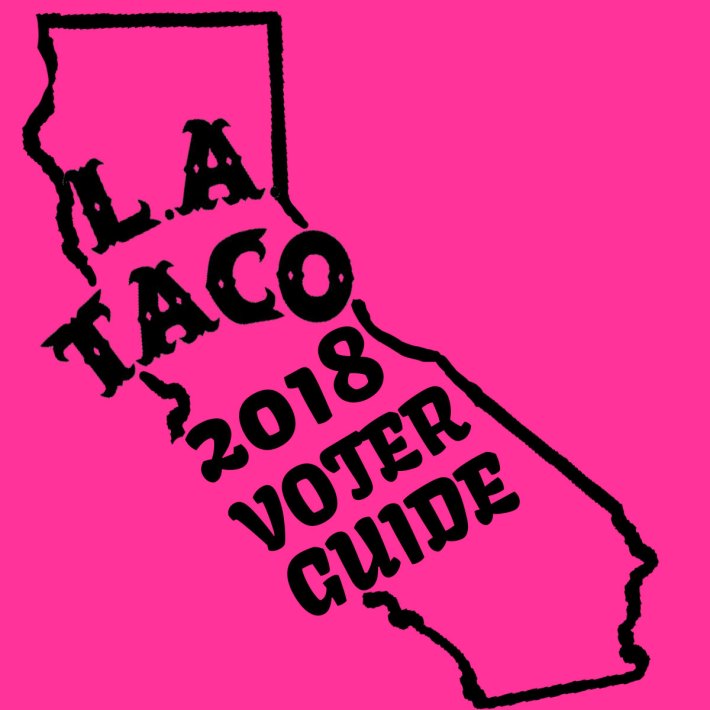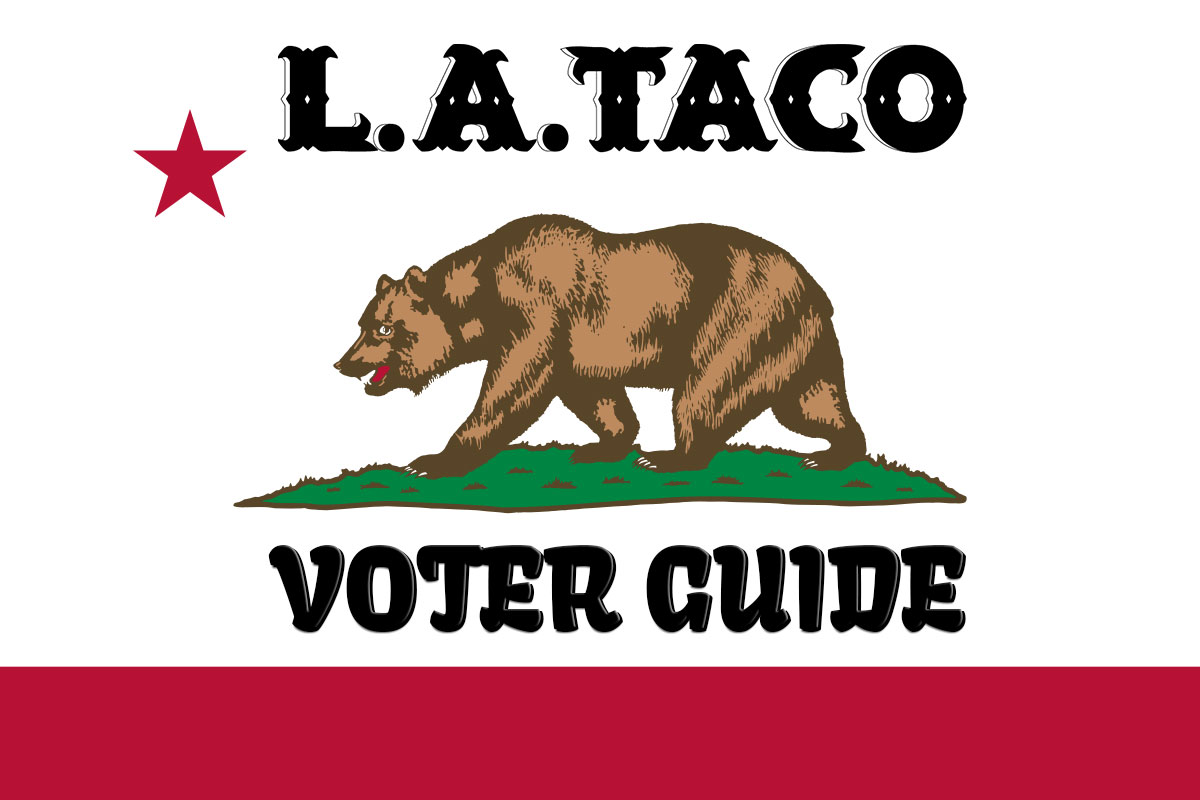Here’s Part 1 of our L.A. Taco Voter Guide, focusing on Proposition 10, a statewide measure that would allow cities to create rent control.
[dropcap size=big]Y[/dropcap]ou probably got your voter guide in the mail, because it’s just about that time when Californians go to the polls and are asked to vote on propositions. This year they cover everything from whether or not to change Daylight Savings time, to whether EMT workers should get uninterrupted lunch breaks when someone nearby is in need of paramedics.
Every two years you might ask yourself, why do we vote on these things? Don’t we elect politicians to decide this stuff? And didn’t we vote on this very same topic a few years ago? The second installment of this guide will answer those questions, but for now, let’s dive right into one of the most contested initiatives on the ballot for this Tuesday, November 6.
Prop 10 is a tough one, because it perfectly displays the prop-system’s history of addressing nice-sounding proposals that end up having very real and very troubling unintended consequences … This is Part 1 of the L.A. Taco 2018 California Voter Guide.

Prop 10 - “EXPANDS LOCAL GOVERNMENTS’ AUTHORITY TO ENACT RENT CONTROL ON RESIDENTIAL PROPERTY.”
[dropcap size=big]I[/dropcap]t’s all about rent control, and getting rid of the shackles that have prevented housing-strapped cities like San Francisco and Los Angeles from passing rent control laws during this sustained period of skyrocketing housing costs in our state.
Nobody living in California needs a reminder of how expensive it is to rent here. Overall California is the second most expensive state in the country to rent in, after Hawaii.

Maybe the hottest and most misunderstood proposition on this year’s ballot, Prop 10 would repeal the Costa-Hawkins Rental Housing Act and make it possible for city and county governments to pass rent control policies at will. Costa-Hawkins passed the Legislature in 1995, limiting municipalities’ ability to enact new or expansive rent control policies. If Prop 10 passes, it wouldn’t enact rent control itself. It would just give the opportunity for local governments to enact their own rent control policy in the future, which is what local housing activists want to do.
The proposition has brought together interesting coalitions both for and against it. Both Mayor Garcetti and the California Democratic Party have come out in support of the proposition, along with a broad coalition of activist groups that often differ with the mayor and the Democratic Party, including Ground Game L.A., and a host of local Democratic Socialist chapters across the state. The opposing side, led by the California Republican Party, includes the California State Conference of the NAACP in its coalition. The main argument for passing the proposition is that rents across the state are out of control, and to stop rents from rising even more, cities and counties need the flexibility to adopt rent control policies that are crafted for their own unique jurisdictions.
One thing it isn’t about is veterans’ housing. A particularly weird No on Prop 10 ad that disingenuously connects the proposition to worsening the housing crisis and to veterans. It’s showing up on local television, so tell your old folks that Prop 10 has nothing to do with veterans specifically at all. Weird:
[dropcap size=big]T[/dropcap]he arguments against Prop 10 don’t engage with what the proposition wants to do, which, again, is to just make it possible for cities and counties to vote on the possibility of enacting local rent control policy. But they do engage in valid questions about the unintended consequences of rent control, including whether or not it will stifle new, possibly affordable, housing from being built.
The city of Los Angeles, West Hollywood, and Santa Monica currently have rent controlled apartments as well, but they’re frozen and immovable, only available to a few buildings built before 1978 when the City Council passed a six month rent freeze. With Costa-Hawkins in place, those apartments can’t be transferred to new tenants as rent controlled units, so just like in San Francisco, and across the state, people either stay in them as long as they can, or they get turned into condos by landlords.
Michael Dickerson of Shelter for All Koreatown,an L.A. community organization that advocates for Koreatown’s homeless population, and a Yes on Prop 10 coalition member, says this about the possibility of unintended consequences of Prop 10,
“While new buildings are going up, these buildings are disproportionately luxury housing, often displacing existing affordable housing units,” he says. “Current state law prohibits cities from making new rent stabilization rules. With Prop 10, we can reverse these restrictions and unlock a full toolkit of housing policies for each city in California.”
Huge real estate equity firms like Blackstone Real Estate Partners, and apartment management companies like Western National Group are pumping in millions of dollars to the No on Prop 10 campaign, outspending the Yes campaign three times over, arguing that Prop 10 will cause the housing crisis to worsen.
But Prop 10 won’t do that. It also won’t solve the housing crisis, in fact it won’t do anything but eliminate the restrictions that Costa-Hawkins imposes on city and county governments to create rent control policies if they want to, and that’s it.
LA TACO VOTER GUIDE 2018:
Part 1~ Proposition 10 Clears Hurdle For Rent Control
Part 2 ~ Gas Tax Measure Proposition 6 Is All About Hopes of a Republican Revolt
Part 3 ~ Props 1 and 2 Are for Affordable Housing but Come at a Cost
Part 4 ~Measure B Could Eventually Keep Your Tax Dollars Out of Major Private Banks







